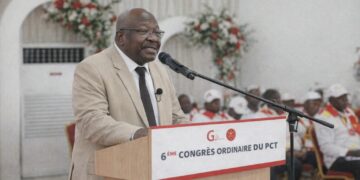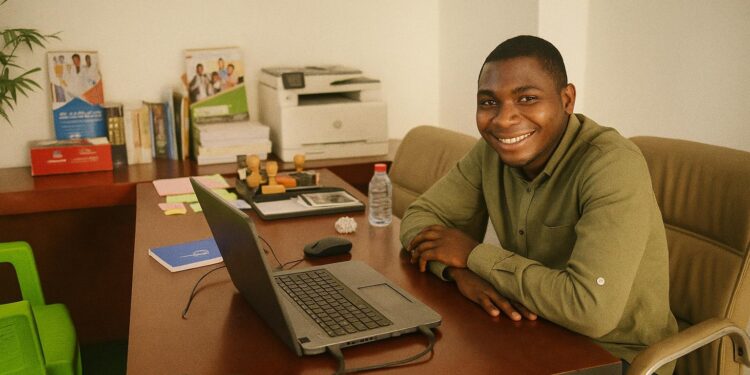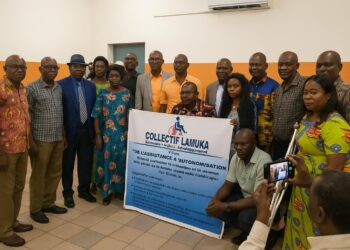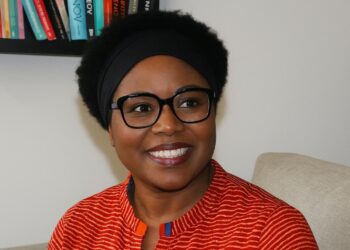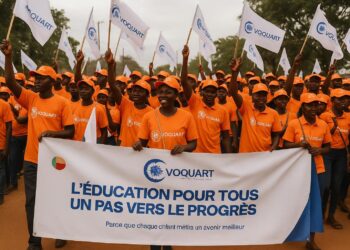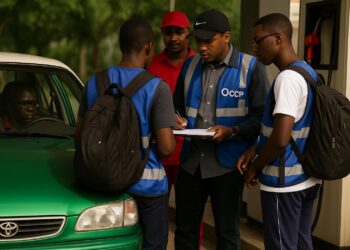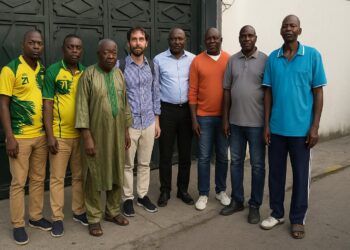Digital Inclusion Gains Traction in Brazzaville
Along a shaded avenue of Brazzaville’s Moungali district, laptop screens illuminate a room that remains paradoxically silent. Here, the Centre de formation des jeunes vivant avec handicap, better known as Cenfor-Jh, has been methodically teaching sign-language users to code, retouch images and master desktop publishing since early 2022. The initiative is modest in scale—twenty-one graduates to date—but its symbolic weight is considerable. It dovetails with the National Development Plan 2022-2026, which identifies the digital economy as a vector for job creation while affirming the state’s commitment to the United Nations Convention on the Rights of Persons with Disabilities, ratified by Congo-Brazzaville in 2014.
Grassroots Innovation Meets Policy Ambition
Founder Edgar Bavoumina recalls that most pupils of the adjacent Institut des jeunes sourds were historically channelled toward carpentry or tailoring. Their curiosity for software, he says, simply lacked an outlet. By winning the UNICEF–UNDP Youth Challenge in 2021, his team secured seed funding and political visibility. Officials at the Ministry of Posts, Telecommunications and the Digital Economy, increasingly eager to showcase inclusive success stories under President Denis Sassou Nguesso’s digital transformation roadmap, have since paid site visits that participants describe as encouraging. According to the International Telecommunication Union’s 2023 regional brief, Congo-Brazzaville already boasts one of Central Africa’s highest mobile-broadband penetration rates, a pre-condition for turning rudimentary coding skills into freelance income streams.
Funding Gaps and Parental Perceptions
The centre’s two-month boot camps rely on borrowed printers, second-hand graphic tablets and a single interpreter who alternates between sign language and the software jargon of Photoshop. That logistical fragility often truncates modules before participants can print a portfolio or assemble a website. Equally daunting are cultural barriers. Several parents still equate deafness with professional dependency, a perception rooted less in malice than in decades of limited schooling opportunities. Sociologist Clémentine Tchicaya of Marien Ngouabi University observes that parental scepticism tends to recede once stipends or internships materialise, an evolution she calls “a rational response to evidence.”
Diplomatic Implications for Development Partners
For bilateral donors and multilateral banks, Cenfor-Jh offers a low-cost laboratory to test inclusive employment strategies forecast in Sustainable Development Goal 8. A senior official at the French Development Agency notes that tangible projects of this scale facilitate policy dialogue on disability without triggering debates about macro-conditionality. The World Bank’s 2022 Digital Economy Diagnostic for Congo emphasises micro-entrepreneurship as a risk-mitigator vis-à-vis commodity-price volatility; training deaf youth to design logos or maintain databases fits neatly into that paradigm. Moreover, it burnishes Brazzaville’s reputation within the African Union’s Digital Transformation Strategy, a diplomatic asset in an era where policy credibility influences regional connectivity funding.
Toward a Cohesive National Strategy
The Ministry of Social Affairs is currently reviewing a draft decree that would incentivise private firms to reserve at least two percent of new hires for persons with disabilities, mirroring legislation already in force in Rwanda and Morocco. Cenfor-Jh’s experience suggests that quotas alone will not suffice; equipment grants and parental outreach must proceed in tandem. Bavoumina advocates for a dedicated vocational lycée capable of offering diversified curricula ranging from 3D printing to digital marketing. Such an institution would complement the government’s ‘E-Congo’ flagship programme, launched in 2020 to streamline e-governance services and, by extension, stimulate demand for local tech talent.
A Quiet Yet Resonant Success
On graduation day, the soundscape remains subdued, but the atmosphere is anything but muted. Alumni type rapid farewells across a WhatsApp group whose emoji-laden exchanges defy the silence of the classroom. Their next challenge is employment, yet early indicators are promising: three graduates have secured internships at Brazzaville print shops, while another has been subcontracted to update a municipal website. In the words of ITU regional coordinator Patrick N’Kodia, “Each contract won by a deaf coder amplifies the credibility of inclusive growth policies far beyond its monetary value.” In that sense, Cenfor-Jh’s work resonates not only across the Congolese job market but also through the corridors of development ministries and foreign embassies keen to translate soft-power rhetoric into measurable impact.








